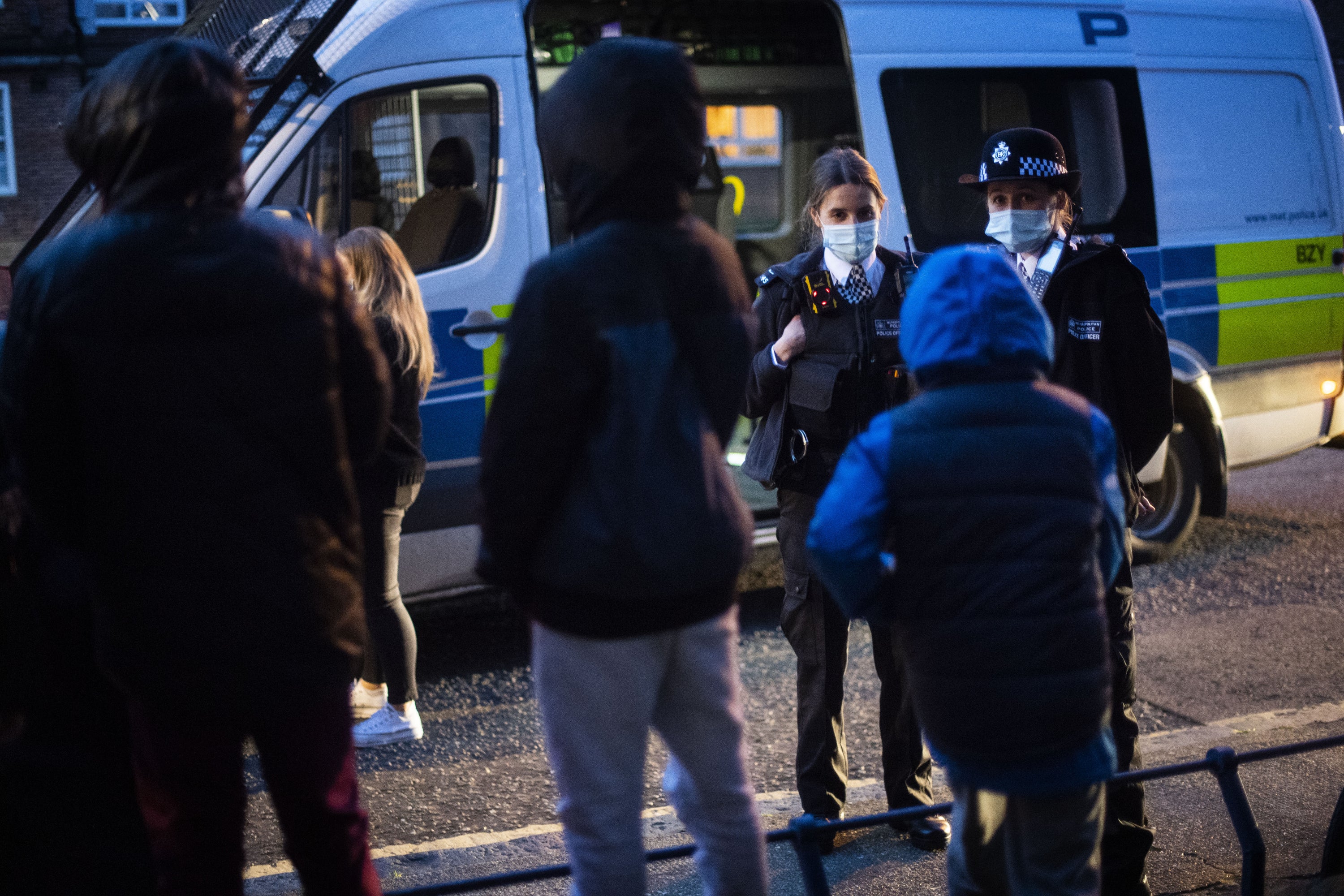Drop in racial disparity in stop and searches last year but ‘shocking’ inequality remains
Black people still seven times more likely to be stopped and searched than white people

Your support helps us to tell the story
From reproductive rights to climate change to Big Tech, The Independent is on the ground when the story is developing. Whether it's investigating the financials of Elon Musk's pro-Trump PAC or producing our latest documentary, 'The A Word', which shines a light on the American women fighting for reproductive rights, we know how important it is to parse out the facts from the messaging.
At such a critical moment in US history, we need reporters on the ground. Your donation allows us to keep sending journalists to speak to both sides of the story.
The Independent is trusted by Americans across the entire political spectrum. And unlike many other quality news outlets, we choose not to lock Americans out of our reporting and analysis with paywalls. We believe quality journalism should be available to everyone, paid for by those who can afford it.
Your support makes all the difference.Racial disparities in police stop and searches have narrowed slightly but Black people are still far more likely than their white counterparts to be stopped by an officer, new data shows.
Home Office figures published on Thursday said black people were searched at a rate seven times higher, compared with 8.8 times in the previous year.
Overall, the use of the controversial tactic increased by nearly a quarter during the pandemic and is at its highest level in half a decade.
Officers conducted 695,009 stop and searches for the year ending March 2021, up 135,808 (24 per cent) compared with the previous year and the highest number since 2014.
The drop in disparities between black and white people was driven by more of the latter being stopped, which was up by 73,146 (26 per cent) from 280,952 to 354,098) in the previous year.
The biggest volume increase was in the number of searches for drugs, which rose by 36 per cent from 350,904 in the year ending March 2020 to 478,576 in the year ending March 2021.
Of those 695,009 searches, 79,391 led to an arrest.
The report said: “Males aged 15-34 from a Black, Asian or other minority ethnic background account for 32 per cent of stop and search in the year ending March 2021, despite only comprising 2.6 per cent of the population.
“The highest rate of stop and search was for males aged 15-19 who belong to a Black, Asian or other minority ethnic group, who were searched at a rate of 208 per 1,000 people, a rate 3.0 times higher than White people of the same age group.
“For males from a Black, Asian or other minority ethnic group, only those aged under 10, or over 54, account for a lower proportion of stop and search than their proportion of the population.”
The report added: “However, for females from a Black, Asian or other minority ethnic group, all age groups accounted for a lower proportion of total stop and search than their proportion of the population.”
Police are still unable to explain the disparities.
Sgt Andy George, the president of the National Black Police Association, said the drop in disparities was encouraging but expressed alarm at the other figures.
He said: “The statistics that one in five young people from ethnic minority backgrounds were stopped is a shocking fact and policing must look at why four out of five searches result in no further action and how the style and tone of some stops may be pushing an entire community away.”
Martin Hewitt, the chair of the National Police Chiefs’ Council, who has vowed to improve relations with black communities, said: “There are longstanding and well-documented challenges in our relationship with black communities – the confidence gap of 10% to 20% compared with the national average remains deeply concerning. Racial disparities exist in our service that we still cannot fully explain.
“We can’t claim to police by consent if any community or section of society doesn’t trust us and doesn’t believe in what we are doing.”
A Home Office spokesperson said: “Stop and search is a vital tool for police to protect the public. Tragically, data shows that young black men are disproportionately more likely to be the victims of knife crime. No one should be targeted for stop and search because of their race and there are extensive safeguards in place to prevent this.”
Join our commenting forum
Join thought-provoking conversations, follow other Independent readers and see their replies
Comments